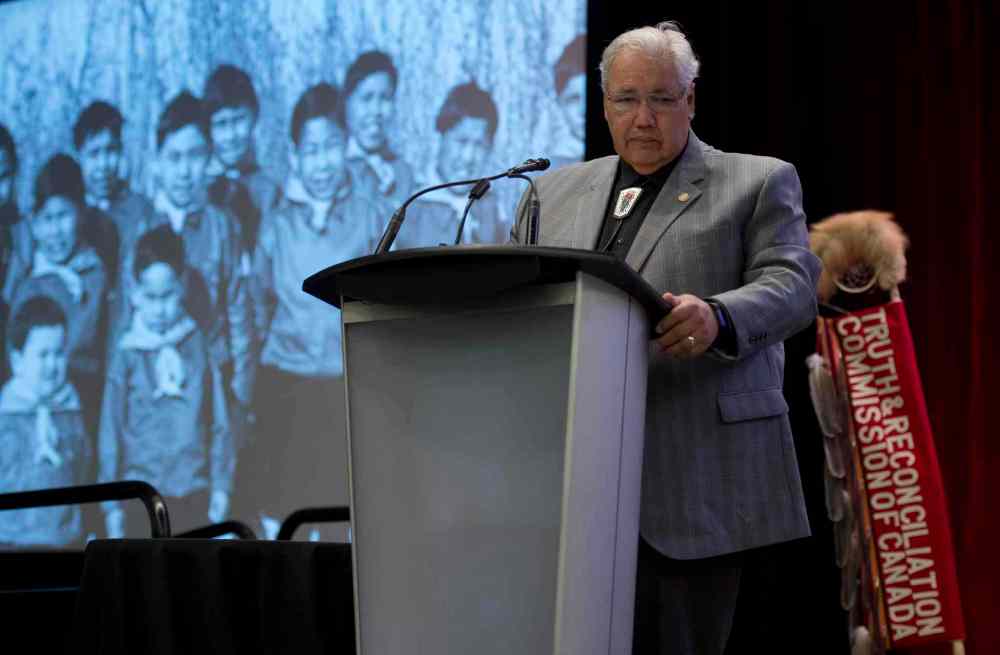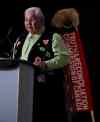A mountain waiting to be climbed
Advertisement
Read this article for free:
or
Already have an account? Log in here »
To continue reading, please subscribe:
Monthly Digital Subscription
$0 for the first 4 weeks*
- Enjoy unlimited reading on winnipegfreepress.com
- Read the E-Edition, our digital replica newspaper
- Access News Break, our award-winning app
- Play interactive puzzles
*No charge for 4 weeks then price increases to the regular rate of $19.00 plus GST every four weeks. Offer available to new and qualified returning subscribers only. Cancel any time.
Monthly Digital Subscription
$4.75/week*
- Enjoy unlimited reading on winnipegfreepress.com
- Read the E-Edition, our digital replica newspaper
- Access News Break, our award-winning app
- Play interactive puzzles
*Billed as $19 plus GST every four weeks. Cancel any time.
To continue reading, please subscribe:
Add Free Press access to your Brandon Sun subscription for only an additional
$1 for the first 4 weeks*
*Your next subscription payment will increase by $1.00 and you will be charged $16.99 plus GST for four weeks. After four weeks, your payment will increase to $23.99 plus GST every four weeks.
Read unlimited articles for free today:
or
Already have an account? Log in here »
Hey there, time traveller!
This article was published 03/06/2015 (3817 days ago), so information in it may no longer be current.
Justice Murray Sinclair looked up from his speech with what appeared to be a blush of anger.
Sinclair was standing before a packed hotel ballroom in Ottawa for the official launch of the report of the Truth and Reconciliation Commission of Canada, which spent the last six years investigating the impact of the residential school system on aboriginal people.
Sinclair delivered a devastatingly frank speech that was frequently interrupted by loud cheers from aboriginal residential school survivors who had gathered on this historic occasion.

Without fear of political repercussions, Sinclair boldly and directly challenged official federal government policy, criticized government programs for aboriginals and even suggested Prime Minister Stephen Harper’s 2008 official apology to residential school survivors would be rendered meaningless unless his government took dramatic steps to deal with the legacy of the residential schools.
“Words are not enough,” Sinclair said in a tone that held the delicate middle ground between anger and frustration.
The TRC report is a stunning read, full of never-before-heard details about the atrocities committed against aboriginal people at residential schools. It features a biting analysis of the failure of the federal government to live up to its original promises to aboriginal people when they were forced from their lands and their children were forced to attend boarding schools.
The report also includes more than 90 recommendations for the federal and provincial governments to deal more directly with the legacy of the residential school experience: familial dysfunction, economic oppression, poor health and limited prospects for improvements in any of these areas.
The recommendations do not necessarily include specific solutions; instead, the TRC report is a compendium of challenges the TRC wants Ottawa and the provinces to undertake as soon as possible. Chief among them, concrete steps to improve the health, education and economic opportunities of all aboriginal people.
Sinclair is clearly no fool and acknowledged in his speech the ambitious list of undertakings would be difficult and costly. He also conceded that given current economic concerns, it would be politically challenging to find the resources.
“As commissioners, we have described for you a mountain,” Sinclair said. “We have shown you the path to the top. We call upon you to do the climbing.”
It is not clear yet whether any political leaders will climb that mountain, or if they do, how far they will get. However, the TRC report has arrived at a special moment in the nation’s political calendar, just four months before the start of a federal election campaign.
One thing that seems certain at this point is the current Conservative government does not appear keen to move on the TRC recommendations.
In question period, the prime minister was impenetrable as NDP Leader Tom Mulcair and Liberal Leader Justin Trudeau tried to get some sort of concession from the Tory government. Both men have already pledged to fully implement the TRC recommendations. Harper would only say he needed time to study the recommendations before deciding “the next steps.”
However, Harper made it clear there were some recommendations that would not be among those next steps. He deflected demands he adopt the UN Declaration on the Rights of Indigenous Peoples, a core TRC recommendation. Nor would Harper agree the residential school program should be officially declared a cultural genocide, as Sinclair called it in his report. Nor would the prime minister budge from his refusal to launch an inquiry into missing and murdered aboriginal women, another TRC recommendation.
Harper repeatedly referred to his 2008 apology and to ongoing government programs to help improve conditions for aboriginal Canadians. The political translation: We’ve done everything that we’re prepared to do.
It’s important to remember Harper inherited the TRC process when he became prime minister in 2006. The TRC was a feature of the Indian Residential Schools Settlement Agreement, which was launched the previous year under Liberal prime minister Paul Martin as a way of consolidating more than 18,000 civil claims made against the government by residential school survivors.
It is true it was a Conservative government that signed off on the agreement and found the nearly $2 billion to compensate residential school survivors. However, with its lacklustre response to the TRC report, it seems obvious the Tory government is losing patience with the process.
Very soon, the debate about how far to go with the TRC recommendations will officially become an election issue. Perhaps voters can instruct the politicians on how far, and how fast, they should scale the mountain.
dan.lett@freepress.mb.ca

Dan Lett is a columnist for the Free Press, providing opinion and commentary on politics in Winnipeg and beyond. Born and raised in Toronto, Dan joined the Free Press in 1986. Read more about Dan.
Dan’s columns are built on facts and reactions, but offer his personal views through arguments and analysis. The Free Press’ editing team reviews Dan’s columns before they are posted online or published in print — part of the our tradition, since 1872, of producing reliable independent journalism. Read more about Free Press’s history and mandate, and learn how our newsroom operates.
Our newsroom depends on a growing audience of readers to power our journalism. If you are not a paid reader, please consider becoming a subscriber.
Our newsroom depends on its audience of readers to power our journalism. Thank you for your support.
History
Updated on Wednesday, June 3, 2015 8:06 AM CDT: Replaces photo







